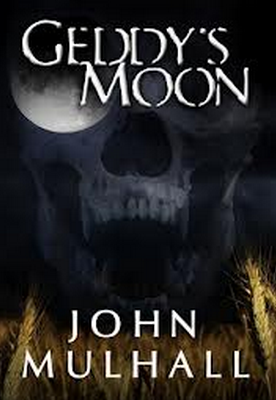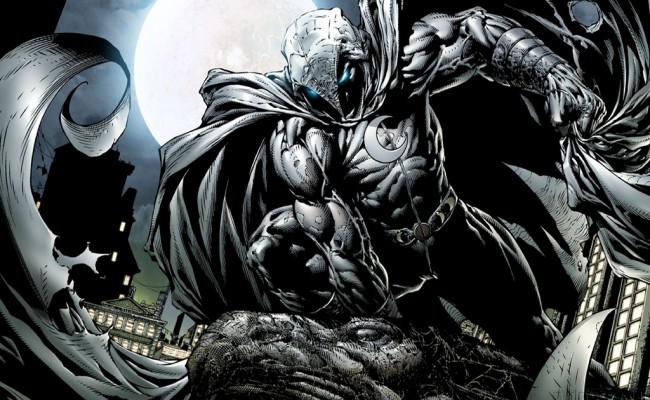Like a Mexican restaurant that also serves Pad Thai, Geddy’s Moon, the debut novel by John Mulhall tries its hardest to please every genre fan by fusing multiple flavors into one big plot. Yes, there’s horror. But there’s also mystery, and government conspiracies, and even a dash of historical fiction. And while the intent is mostly good (who wouldn’t want to write a story that pleases everyone?) the result is a book that feels uneven even in its most satisfying moments.
Here’s the official description:
Tyler is an amnesiac, drifting aimlessly across the country, struggling to regain his lost memories. When he arrives in Geddy’s Moon, a sleepy town in the middle of the Kansas wheat fields, fragments of his past begin to resurface. But as he establishes new relationships in town, and spends time with the local librarian and her son, he finds himself tormented by nightmares that grow more unsettling each night. What horrific events took place before Tyler arrived in Geddy’s Moon? And could he have brought a terrifying – and possibly supernatural – danger along with him? As the pieces of his fractured memory begin to fall into place, he fears that it may already be too late to keep himself, and those he’s begun to care about, safe from a vicious evil.
It’s All About Story
John Mulhall is an imaginative writer who’s not afraid of mixing genres, blurring boundaries, and upending reader’s expectations. What he’s not, is a stylist. While his story is clearly rendered with care, he never produced any sentences that blew my mind or even made me pause. But that’s okay, because really, for Mulhall, it’s all about story. And while the publisher’s description might cast Geddy’s Moon as a “kinda” horror story of a drifter trying to discover who he is, Mulhall’s inaugural work is really much more ambitious in scope.
reader’s expectations. What he’s not, is a stylist. While his story is clearly rendered with care, he never produced any sentences that blew my mind or even made me pause. But that’s okay, because really, for Mulhall, it’s all about story. And while the publisher’s description might cast Geddy’s Moon as a “kinda” horror story of a drifter trying to discover who he is, Mulhall’s inaugural work is really much more ambitious in scope.
How ambitious?
Well, to his credit, Mulhall has created an unusually robust world with Geddy’s Moon: the narrative toggles back-and-forth between present day Kansas, ‘80s suburban Los Angeles, and the English countryside circa 1137. He’s also created a set of characters powerful and immortal enough to navigate these large swathes of time; and a group of simple mortals brave enough to get tangled up in their ancient feud.
Yes, it’s a lot. And depending on your patience and flexibility, it might just be the best thing you’ve ever read — especially if you’re a fan of anything and everything that falls under the roomy canopy of “genre”. But for some it might feel like overkill.
Too Much Story Kills Momentum
Don’t get me wrong — I love horror. And mysteries. And yeah, I can get totally geeked by X-Files-inspired conspiracy-tales where government eggheads uncover the secrets of reclusive monsters. Historical fiction? Sure, I can read that in a pinch. But what I can’t do is get in the mood for all these things at once, and that’s exactly what Geddy’s Moon throws at you — and in not in an even, blended way. After the establishment of the initial “Who the fuck is Tyler” mystery the narrative dives into a straight-up horror story where (spoiler alert) children battle a creature reminiscent of King’s It (or even Silver Bullet).
This strategy might have felt effective if these initially disconnected narratives were blended together (or at east shorter in length), but Mulhall spends over 100 pages on the initial mystery before pivoting towards horror. Page 109, quite literally, feels like the start of a new book. And yes, of course, any savvy reader knows that these two seemingly incongruent stories will eventually intersect, but this plot device is a *complete* momentum killer. Later, when Mulhall goes into a deep-dive exploration into the creature’s backstory it feels like the start of yet another book (complete with rising action, climax and resolution). And while it’s good, it unfortunately kills the momentum even more. Mulhall would have been well served by simply paring down his word-count, and saving all his juice for the whichever plotline he considered the most essential.
In the end, Geddy’s Moon feels less like a book and more like the outline to a kick-ass twelve episode season for some larger genre-bending show. This is to say, Mulhall’s story felt ill-suited for a 483 page book; it was too vast and unwieldy to be a page-turning genre thriller, and too short to capture the episodic scope of his imagination. But still, his imagination is strong. And I look forward to seeing what he writes next.














S#!T Talking Central